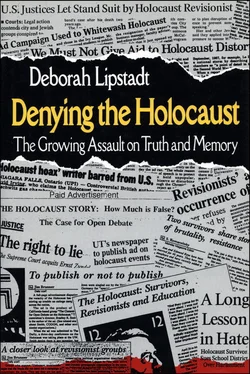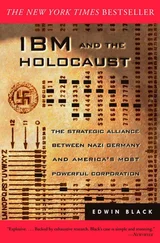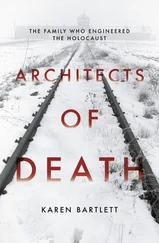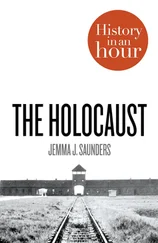In order most effectively to spread their lies, deniers such as Duke must rewrite not only the history of World War II but also their own past lives. In order to forge his way in the political arena, David Duke had to reformulate his personal history. His efforts to distance himself from his more extremist past are reflective of deniers’ tactics. They increasingly avoid being linked with identifiable bigots. When Duke was identified as a Klansman his access to the public arena was limited. When he decided to run for office he shed his sheet and donned a three-piece suit, winning him, if not adherents, at least a respectable audience. He gained political respectability despite the fact that but a short time earlier he had sold racist, antisemitic, and denial literature, including The Hitler We Loved and Why and The Holy Book of Adolf Hitler, from his legislative offices. {12} 12 Jason Berry, “The Hazards of Duke,” Washington Post, May 14, 1989. He also tried to appear as if he had modulated his views on other topics. No longer did he speak of sterilizing welfare mothers; now it was “birth control incentives” ( Los Angeles Times, June 10, 1990). See also Lawrence N. Powell, “Read my Liposuction: The Makeover of David Duke,” New Republic, Oct. 15, 1990.
But it is not only former members of extremist groups who serve as vehicles for disseminating Holocaust denial. More mainstream individuals have assisted in this effort as well. Patrick Buchanan, one of the foremost right-wing conservative columnists in the country, used his widely syndicated column to express views that come straight from the scripts of Holocaust deniers. He argued that it was physically impossible for the gas chamber at Treblinka to have functioned as a killing apparatus because the diesel engines that powered it could not produce enough carbon monoxide to be lethal. Buchanan’s “proof” was a 1988 incident in which ninety-seven passengers on a train in Washington, D.C., were stuck in a tunnel as the train emitted carbon monoxide fumes. Because the passengers were not harmed, Buchanan extrapolated that the victims in a gas chamber using carbon monoxide from diesel engines would also not have been harmed. {13} 13 Jacob Weisberg, “The Heresies of Pat Buchanan,” New Republic, Oct. 22, 1990, pp. 26–27.
He ignored the fact that the gassings at Treblinka took as long as half an hour and that the conditions created when people are jammed by the hundreds into small enclosures, as they were at Treblinka, are dramatically different from those experienced by a group of people sitting on a train. Asked where he obtained this information, Buchanan responded, “Somebody sent it to me.” {14} 14 Ibid., p. 26.
Buchanan has also referred to the “so-called Holocaust Survivor Syndrome.” According to him, this involves “group fantasies of martyrdom and heroics.” {15} 15 Report of the Anti-Defamation League on Pat Buchanan, Los Angeles Jewish Journal, Sept. 28, 1991.
, [1] Buchanan’s statements were made as part of his defense of John Demjanjuk, a retired Cleveland auto worker accused of being Ivan the Terrible, notorious camp guard and a mass murderer at Treblinka. It is not Buchanan’s defense of Demjanjuk with which I take issue—it is his use of denial arguments to do so. Buchanan has consistently opposed any prosecution of Nazi war criminals.
I am not suggesting that Patrick Buchanan is a Holocaust denier. He has never publicly claimed that the Holocaust is a hoax. However, his attacks on the credibility of survivors testimony are standard elements of Holocaust denial. Buchanan’s ready acceptance of this information and reliance on it to make his argument are disturbing, [2] It is ironic that Duke’s efforts to win the Republican presidential nomination were overshadowed by Buchanan, who had earlier advocated that the Republicans stop feeling guilty about their “exploitation” of the Willie Horton issue and instead take a “hard look at Duke’s portfolio of winning issues” ( New Republic, October 15, 1990, p. 19).
for this is how elements of Holocaust denial find their way into the general culture. During the 1992 presidential campaign, when Buchanan was seeking the Republican nomination, he refused to retract these contentions. Nonetheless few of his fellow journalists were willing to challenge him on the matter. As troubling as Buchanan’s easy acceptance of these charges was the latitude given him by his colleagues. {16} 16 New York Times, Feb. 14, 1992.
Denial arguments have been voiced not only by politicians in the United States but by those in other countries as well. Extremist nationalist groups in those Central and Eastern Europe countries with a tradition of populist antisemitism have a particular attraction to Holocaust denial. Many of the precursors of these movements collaborated with the Nazis. Holocaust denial offers them a means of both wiping out that historical black mark—if there was no Holocaust then cooperating with the Nazis becomes less inexcusable—and rehabilitating those who were punished by Communists for collaborating. Since the fall of communism, deniers in North America and Western Europe have worked with like-minded groups in Eastern European countries to establish “mini” Institutes for Historical Review (referring to the California-based pseudo-academic institution that is the bastion of denial activities and publications). Their objective is to attract people, particularly intellectuals, who are seeking an extremist nationalism cleansed of taints of Nazism. {17} 17 David Warshofsky (pseud.), interview with author, December 1992. “Warshofsky” is a regular participant in the Institute’s meetings and is in constant communication with various deniers both in the United States and in Europe.
Former Communist bloc countries are particularly susceptible to this strain of pseudo-history because postwar generations have learned virtually nothing about the specifically Jewish nature of Nazi atrocities. The Communists, engaging in their own form of revisionism, taught that it was the fascists (not Germans) who killed Communists (not Jews). The specifically Jewish facet of the tragedy was excised.
While no politician has based his or her entire campaign on Holocaust denial, a number have used it when it was in their interest to do so. Croatian president Franjo Tudjman wrote of the “biased testimonies and exaggerated data” used to estimate the number of Holocaust victims. And in his book Wastelands—Historical Truth, he always places the word Holocaust in quotation marks. {18} 18 Robert D. Kaplan, “Croatianism: The Latest Balkan Ugliness,” New Republic, Nov. 25, 1991, p. 16.
Tudjman has good historical reasons for doing so: Croatia was an ardent Nazi ally, and the vast majority of Croatian Jews and non-Jews were murdered by their fellow Croatians, not by Germans. {19} 19 “Croatia,” Encyclopedia of the Holocaust (New York, 1990), Israel Gutman, ed., p. 326.
Tudjman obviously believes that one of the ways for his country to win public sympathy is to diminish the importance of the Holocaust.
It is likely that as Eastern Europe is increasingly beset by nationalist and internal rivalries, ethnic and political groups that collaborated in the annihilation of the Jews will fall back on Tudjman’s strategy of minimization. In Slovakia crowds of protesters at political gatherings have chanted antisemitic and anti-Czech slogans and waved portraits of Nazi war criminal Josef Tiso, who was directly involved in the deportation of Slovakian Jews to Auschwitz. In an effort to whitewash Tiso’s antisemitism during World War II and to resurrect him as a national hero, his speeches have been broadcast at these rallies. For Slovakian separatists Tiso’s regime constitutes the legal and moral precedent for a sovereign Slovakia. Neither Tudjman nor the Tiso protesters are engaged in overt denial. However, their efforts to diminish the magnitude of the deeds and roles of the central players are critically important aspects of Holocaust denial. {20} 20 Some of the key Slovakian separatists have engaged in actual denial. Jewish Telegraphic Agency, Mar. 17, 1992.
There is a psychological dimension to the deniers’ and minimizers’ objectives: The general public tends to accord victims of genocide a certain moral authority. If you devictimize a people you strip them of their moral authority, and if you can in turn claim to be a victim, as the Poles and the Austrians often try to do, that moral authority is conferred on or restored to you.
Читать дальше












